Gender Studies
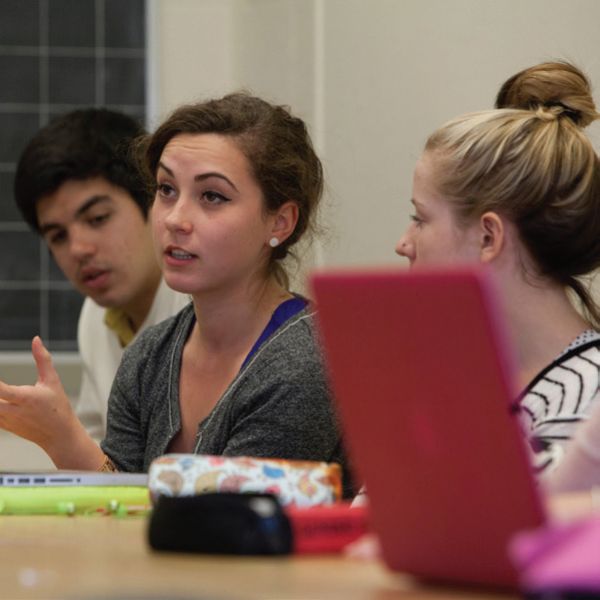
Gender Studies opens doors for students to address growing concerns about inequity, equity and justice across national and global societies. Gender affects everyone, making Gender Studies a space where our theory and our practice attend to the differences and connections among diverse peoples worldwide. As an interdisciplinary field, Gender Studies helps students connect social science, humanities, arts, and natural science methods to produce innovative new knowledge.
GeoEngineering
Unique in North America, the GeoEngineering program is a collaboration between faculty members at Queen’s University and the Royal Military College (RMC). Drawn from three engineering departments at the two universities, the GeoEngineering Centre’s members are dedicated to advancing knowledge in geotechnical, geohydrological, geochemical, geohazards, and cold regions. The program links three accredited graduate programs to provide shared learning experiences with interdisciplinary content: Civil Engineering (Queen’s); Geological Sciences & Geological Engineering (Queen’s); and Civil Engineering (RMC). Through the development of collaborative research projects, with involvement of government and industrial partners, the GeoEngineering Centre provides exciting opportunities for graduate student researchers in specialized or multi-disciplinary fields of interest.
Geographic Information Science
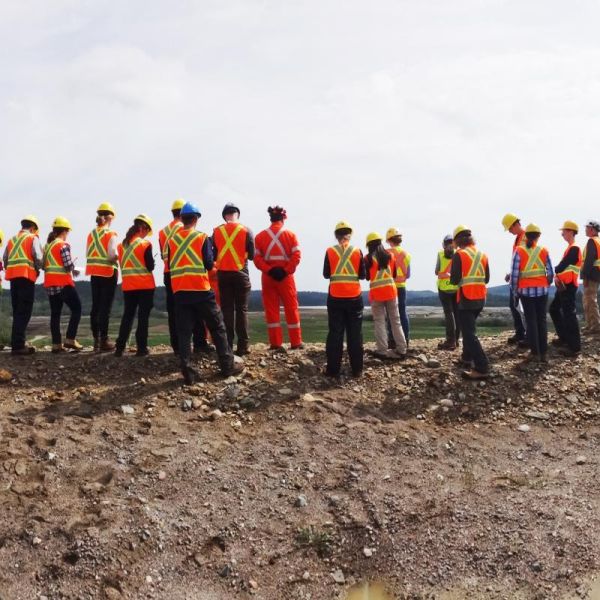
Geographic Information Science (GISc) is the broad umbrella under which geospatial data is collected, processed and analyzed. The Queen’s University Department of Geography and Planning offers a Geographic Information Science Certificate (GISC) to enhance the skills of students not only in Geography and cognate disciplines, but across the gamut of concentrators in the university.
For more information about certificate eligibility and how to apply, visit our webpage.
Geography
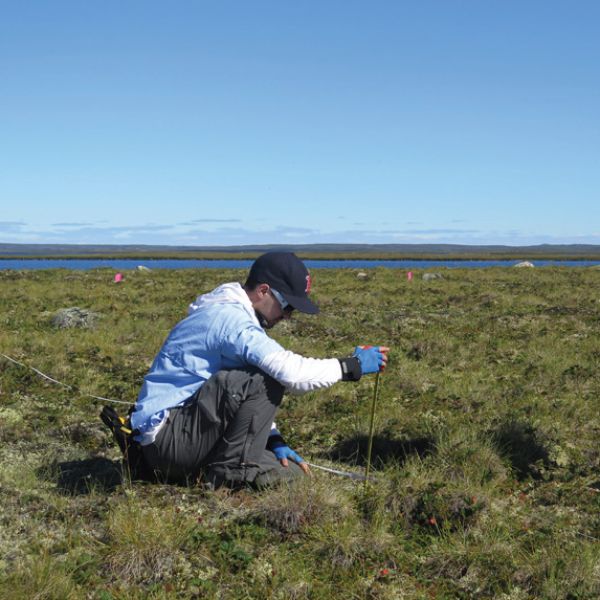
Among academic disciplines, Geography is unique in combining the social sciences and humanities with the physical sciences. In physical geography, or earth system science, we study natural processes, their interactions, as well as natural and human-generated environmental issues, such as climate change. Explore critical questions about our environment and our society as you develop research skills. Study with award-winning faculty in an interdisciplinary department that combines fundamental analysis and research with practical, applied approaches to planning and implementation.
Geological Engineering
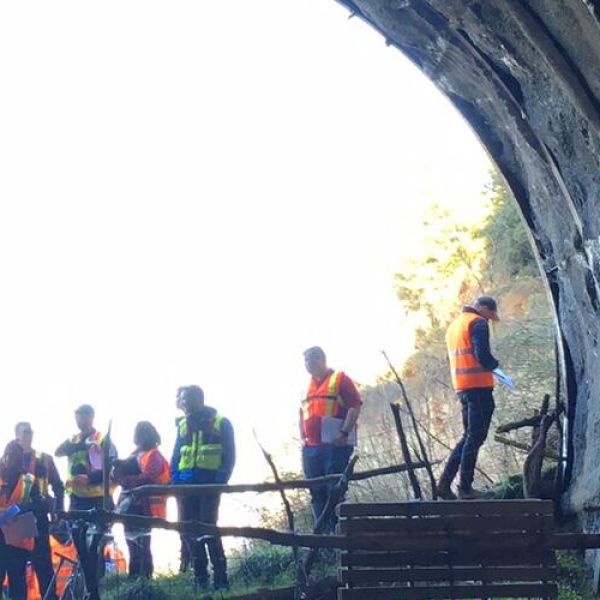
Geological engineers combine core engineering fundamentals with a broad slate of geological knowledge, ranging from geology to geotechnical engineering. You will study physics, chemistry, applied mathematics, and natural processes such as earthquakes, volcanoes, plate tectonics, and mountain formation. You will also acquire field, laboratory, and computer simulation skills and training in state-of-the-art geological investigation and engineering analysis tools.
Geological Sciences

Geoscientists interpret the natural world. They bring methods such as geophysics, geochemistry, geobiology and field geology together to understand the modern and ancient Earth. Clues concealed in rocks and minerals, fluids and fossils, mountains and sediments, glaciers and volcanoes are marshaled to understand and explain the Earth system at all scales. Managing water, mineral and energy resources, designing sustainable strategies for infrastructure and industrial growth, and coping with natural and anthropogenic hazards facing increasing global populations, including climate change, all depend on a deep understanding of natural processes.
German Studies

Global Action and Engagement

The Global Action and Engagement (GAEN) certificate is a fully online Queen’s certificate for students seeking to better understand global development issues and contexts. It is for students who wish to prepare for overseas or volunteer community work and who are looking to enhance their skills with a better theoretical understanding of development concepts.
For more information about certificate eligibility and how to apply, visit our webpage.
Global Development Studies

With dynamic courses and dedicated instructors, Global Development Studies (DEVS) empowers students to engage the pressing global challenges that define our age. Our unique interdisciplinary program connects big-picture thinking with problem-solving approaches to open a wide range of career choices. Upon completing their DEVS degree, our students have gained the specialist knowledge and tangible skills they need to realize their commitment to making the world a better place.
Health Studies

Health Studies strives to understand the complex factors that influence physical, mental and social health and overall well-being. Drawing largely from social science disciplines, our courses explore the social determinants of health, approaches to health promotion, health policy, health behaviour change, epidemiology, and program planning and evaluation. You’ll be expected to challenge yourself and to think critically about health in relation to social justice, politics and culture. And you will gain the skills you need to do that.
Hispanic Studies
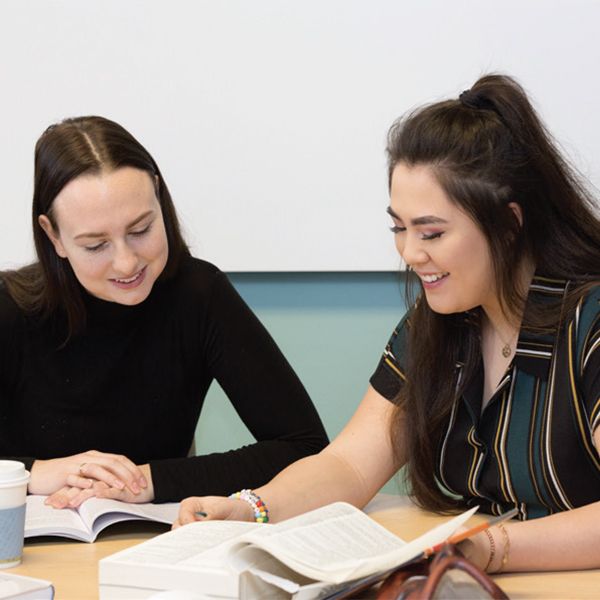
History
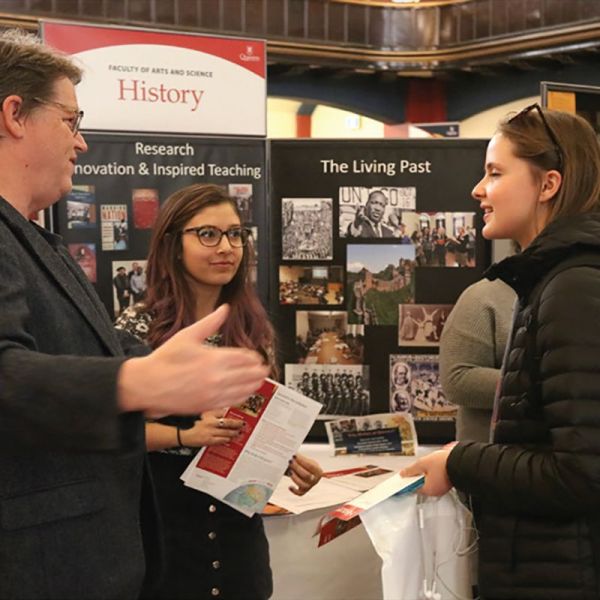
The Department of History at Queen’s offers a challenging and innovative program in established and new fields of historical inquiry, spanning from the pre-modern past to the contemporary era and geographically circling the globe. Consider a degree in History for all it has to offer: well-developed skills in critical reading, writing, and research and, perhaps even more importantly, engagement with oneself and the world we all inhabit. We are a mid-sized university and department and are, therefore, able to create for our students a rich, supportive learning community.
Indigenous Languages and Cultures

The Department of Languages, Literatures and Cultures in partnership with the Four Directions Indigenous Student Centre offers this certificate to current Queen’s students looking to gain a basic understanding of various Indigenous languages and cultures. Students will better understand these languages through instruction embedded in culturally rich and authentic practice, and be introduced to the many traditions, philosophies, and histories of Indigenous peoples.
For more information about certificate eligibility and how to apply, visit our webpage.
Indigenous Studies
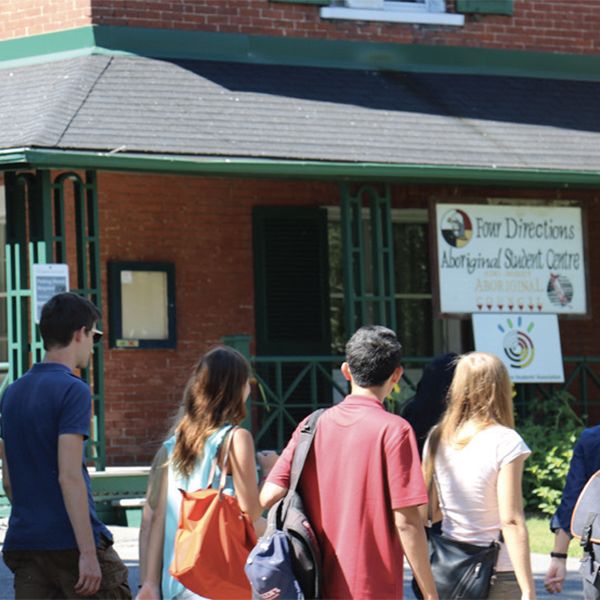
The major in Indigenous Studies is an interdisciplinary degree, designed to draw together a range of course offerings on Indigenous history, culture, experience, language, and ways of knowing from many departments within Arts and Science. It will give both Aboriginal and non-Aboriginal students the opportunity to immerse themselves in Indigenous history and culture, to ensure that future leaders and policymakers have a solid foundation in the histories of First Nations, Métis and Inuit Peoples. Students expand their knowledge and understanding of Indigenous cultures while developing professional skills, such as innovative Indigenous approaches to learning and research to work with Aboriginal communities
Industrial Relations

Our Master of Industrial Relations (MIR) program will prepare you to embark on an exciting career in the broad and dynamic field of Employment Relations. Whether you work in labour relations or human resource management, you will have a direct and positive impact on the productivity and quality of life in contemporary workplaces. Our reputation for an exceptional educational experience and unparalleled alumni network attracts new graduates as well as individuals with extensive work experience. Since it was established in 1983, the Queen’s MIR has become the leading graduate degree in its field. More than 1000 graduates have gone on to shape the world of work - contributing significantly to their workplaces in private and public sector organizations, both in Canada and abroad.
Italian

Knowledge of Italian is very important in today’s world. Italy is one of the top economies in the world, and many employers are seeking people who speak both Italian and English. Knowing Italian is greatly beneficial in several career fields. Italy is a world leader in the culinary arts, interior design, fashion, robotics, shipbuilding -- just to name a few! Italian can be tremendously beneficial, especially in music, art, and classical studies, and is complementary with many of the Major Plans offered at Queen's.
Jewish Studies
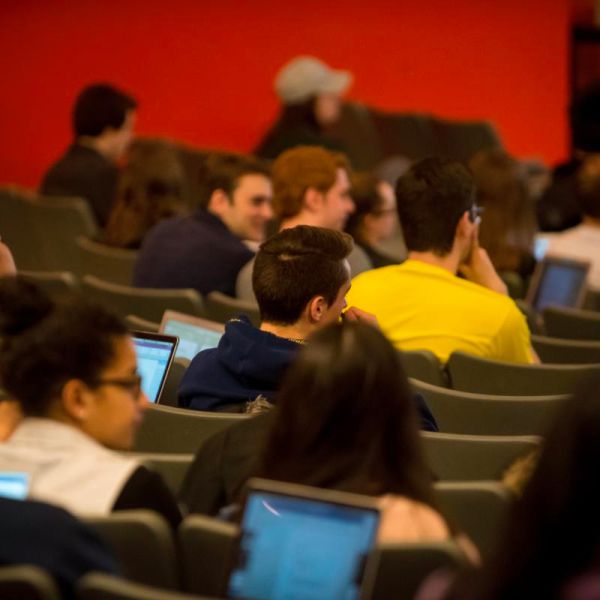
Jewish studies offers courses in the major disciplinary departments of the humanities and supports critical and analytical thinking in these areas. Because the Jewish people have interacted with so many cultures and societies, Jewish studies enhances any major in the humanities or complements any studies in the social or life sciences.
Kinesiology

Kinesiology is the science of the human body in motion. You will learn about the physiological, biomechanical, psychological and sociological factors that influence human movement, exercise and sport performance, along with health. From the structure of the cell to the structure of society, your studies in Kinesiology will expose you to the complex factors that influence health and wellness.
Labour Relations Certificate
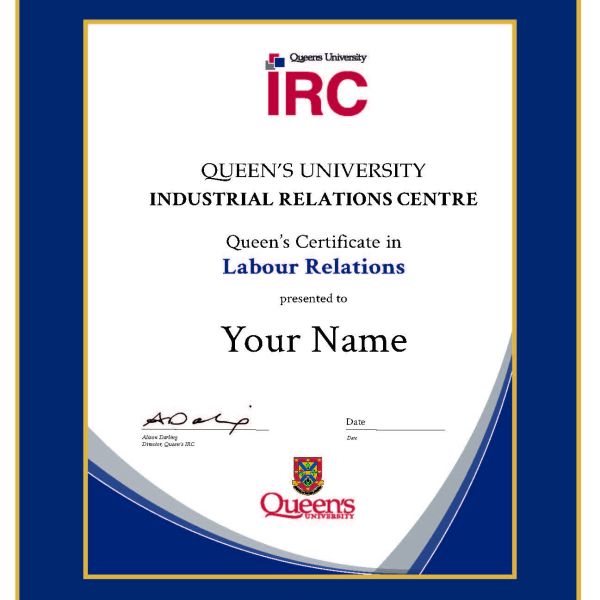
Whether you are from management or among the union ranks, a Queen’s IRC certificate in Labour Relations tells your colleagues you have received a leading skill-building education and are committed to lifelong learning. The curriculum reflects the range of skills labour relations practitioners require to thrive in today’s fast-paced, ever-changing environment.
We offer Labour Relations Foundations as the core required program for the certificate, which allows learners to build foundational competencies and basic skills in a variety of areas, such as negotiation, labour arbitration, fact-finding, and grievance handling. We also offer more in-depth programs to develop more specialized competencies in these areas. The electives can be chosen based on your current training needs and interests.
Required Programs
Labour Relations Foundations (5 credits)
Elective Programs
Any other IRC programs (totalling 7 credits)
Languages, Literatures and Cultures
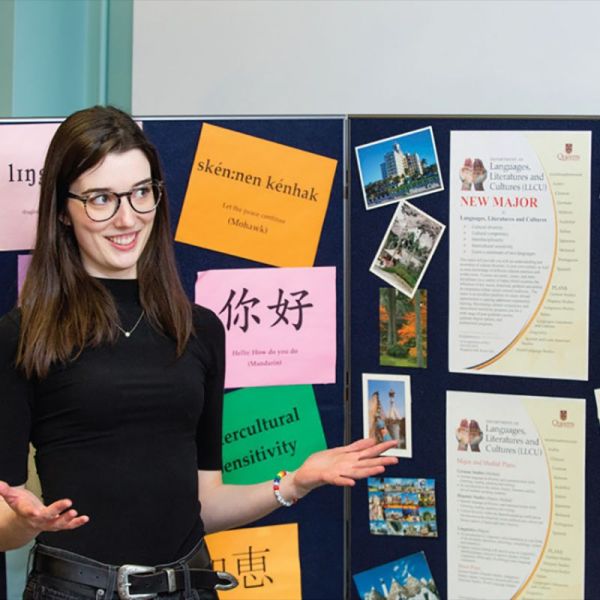
Life Sciences
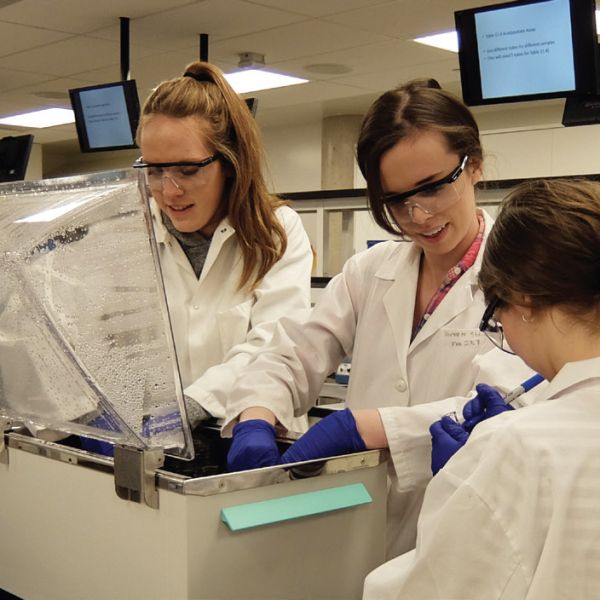
The hallmark of the Life Sciences program is a unique blend of disciplines represented by basic and clinical biomedical science departments in the Faculty of Health Sciences. These departments include Biomedical and Molecular Sciences, Public Health Sciences, and Pathology and Molecular Medicine, in collaboration with the Cancer Research Institute, the Centre for Neuroscience Studies, the Cardiac, Circulation and Respiratory Group, and the Research Group in Reproduction and Development.
The subjects that fall under the umbrella of the Life Sciences program include traditional biomedical disciplines devoted to the anatomical, biochemical, epidemiological, immunological, microbiological, pathological, pharmacological, and physiological sciences. In addition, there are Sub-plans dedicated to contemporary trans-disciplinary themes in the cardiovascular and respiratory sciences, drug development and human toxicology, cancer biology and genetics, and neuroscience.
Linguistics
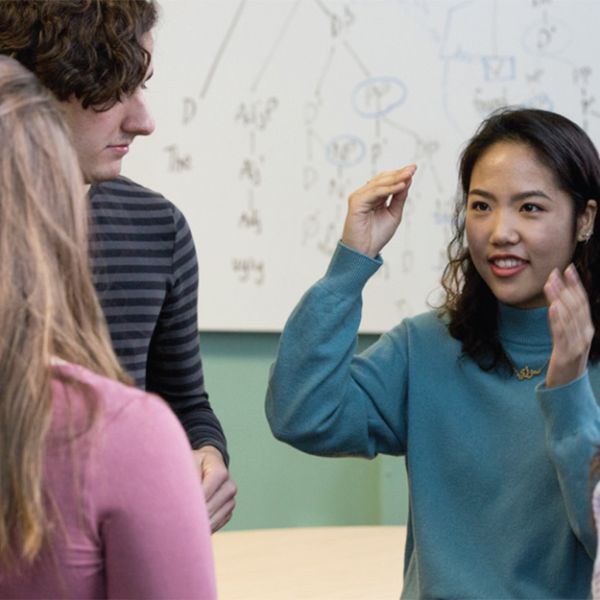
There are three aspects to Linguistics: language form, language meaning, and language in context. Linguistics is a scientific study of a language that explores the structure of language and how it is acquired. Linguistics students explore how a language is structured, how it is used in the production and comprehension of messages, and how language changes over time. You will try to answer questions relating to the nature of language, such as what do all languages have in common, or how do children learn a language? Linguistics is a highly interdisciplinary study with connections to many disciplines.
Mathematical Physics
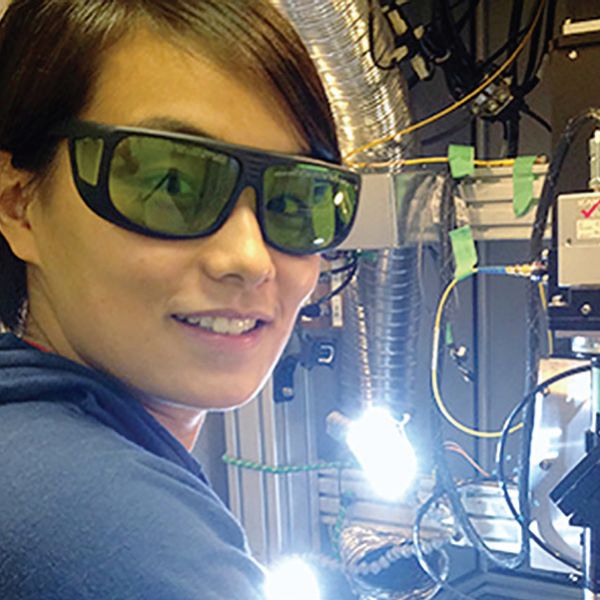
A degree in Mathematical Physics provides you with training in theory, computation, and advanced mathematical modelling techniques relevant for fundamental and applied research. In particular, mathematical physicists study the numeric, combinatoric, algebraic, and computational frameworks that are used to form models of essentially anything that can be quantified. The skills obtained are highly sought after and transferrable to a wide range of fields. The degree leads to careers in academia and government-funded research centres as well as the private sector fields of finance, medicine, technology, and data analytics, to name just a few.
Mathematics

Mathematicians discover and study structures that are fascinating in themselves and that have a surprising ability to help us make sense of many facets of the world: the physical, the biological, the economic, the artistic, the psychological, and the philosophical. By designing and analyzing mathematical models, we increase our understanding of natural processes and human events.
Mathematics & Engineering
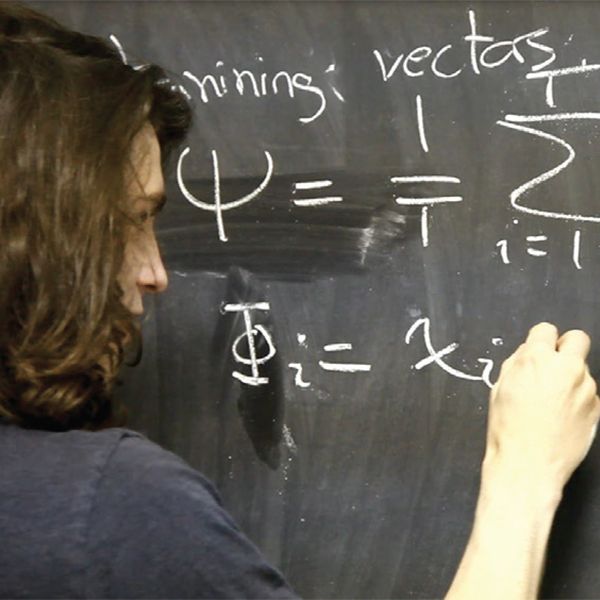
The only Engineering program in North America primarily offered by a mathematics department, Mathematics and Engineering blends engineering with advanced mathematics and provides a rigorous treatment of engineering concepts and ideas. You will learn to analyze and solve engineering problems requiring sophisticated mathematical skills, such as those involving modern communications, control, and mechatronic systems, as well as emerging areas such as artificial intelligence and data science.

